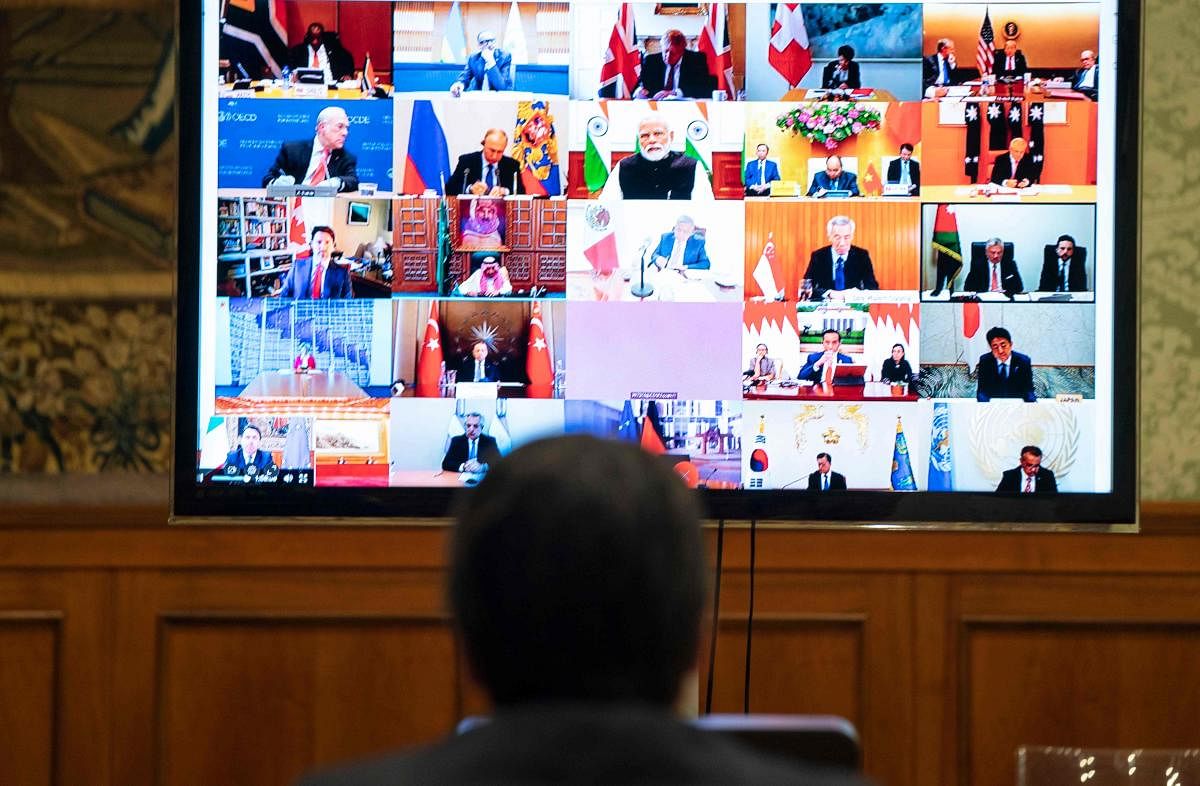
A 165-strong group of world leaders, including 92 former presidents and prime ministers along with economic and health experts, have come together and demanded the creation of a G20 executive task force to coordinate a multi-billion-dollar coronavirus worldwide fighting fund.
The signatories, which also include Indian economists Montek Singh Ahluwalia and Kaushik Basu, call for an immediate global pledging conference to approve such a fund as part of an urgent globally coordinated task force in the face of the pandemic.
"The economic emergency will not be resolved until the health emergency is addressed: the health emergency will not end simply by conquering the disease in one country alone but by ensuring recovery from COVID-19 in all countries," the open letter to G20 leaders notes.
A communique from the G20 Extraordinary Leaders' Summit on March 26, which included participation by Prime Minister Narendra Modi, recognised the gravity and urgency of the entwined public health and economic crises.
However, the world leaders stressed that urgent specific measures are required with speed and at scale, including emergency support for global health initiatives led by the World Health Organization (WHO) and emergency measures to restore the global economy.
The call to action, signed by former UK prime ministers Tony Blair and Gordon Brown, and former UN secretary-general Ban Ki-Moon among others, wants an agreement struck within days for USD 8 billion to rapidly hasten the global effort for vaccines, cure and treatment.
It also wants USD 35 billion to support health systems, from ventilators to test kits and protective equipment for health workers; and USD 150 billion for developing countries to fight the medical and economic crisis, prevent a second wave of the disease flowing back into countries as they come out of the first wave.
This means waiving debt interest payments for the poorest countries, including USD 44 billion due this year from Africa.
The letter also urges the coordination of fiscal stimuli to avoid a recession becoming a depression.
It notes: "All health systems – even the most sophisticated and best funded – are buckling under the pressures of the virus. Yet if we do nothing as the disease spreads in poorer African, Asian and Latin American cities which have little testing equipment, hardly any ventilators, and few medical supplies; and where social distancing and even washing hands are difficult to achieve, COVID-19 will persist there – and re-emerge to hit the rest of the world with further rounds that will prolong the crisis.
"We propose convening a global pledging conference – its purpose supported by a G20 Executive Task Force - to commit resources to meeting these emergency global health needs".
On the global economic outlook, the group proposes a range of measures because a global economic problem requires a global economic response.
The letter adds: "Our aim should be to prevent a liquidity crisis turning into a solvency crisis, and a global recession becoming a global depression. To ensure this, better coordinated fiscal, monetary, central bank, and anti-protectionist initiatives are needed. The ambitious fiscal stimuli of some countries will be all-the-more effective if more strongly complemented by all countries in a position to do so.
"The long term solution is a radical rethink of global public health and a refashioning – together with proper resourcing – of the entwined global health and financial architecture. The UN, the G20 and interested partners should work together to coordinate further action".
To date, 1,438,291 coronavirus cases have been recorded across the world, and 82,726 deaths.